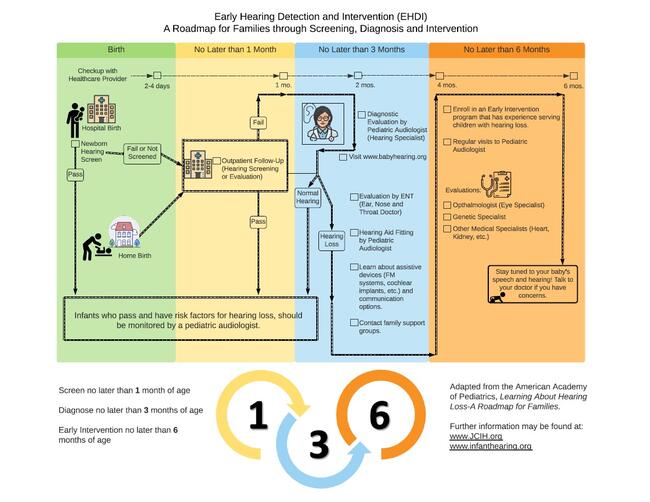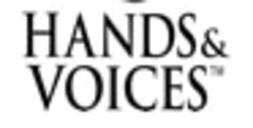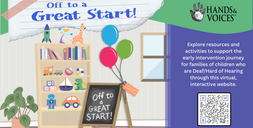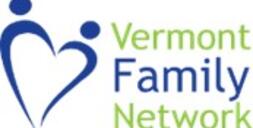
The Vermont Early Hearing Detection & Intervention (VTEHDI) Program supports newborn and early periodic hearing screenings in collaboration with birth hospitals and other community providers, such as audiologists, early head start, homebirth midwives and primary care professionals.
These partnerships ensure timely follow-up to screening and appropriate referrals for diagnostic hearing testing and early intervention services.
Hearing screening and diagnostic results are sent to the VTEHDI Program by health care professionals for all babies born in Vermont. VTEHDI provides support and coordination of services for families and their babies throughout the newborn hearing screening process. VTEHDI works with state and national agencies and organizations to achieve the National 1,3,6 EHDI goals which are:
- Screen before 1 month
- Diagnose before 3 months
- Early Intervention before 6 months
1,3,6 Roadmap for Families









